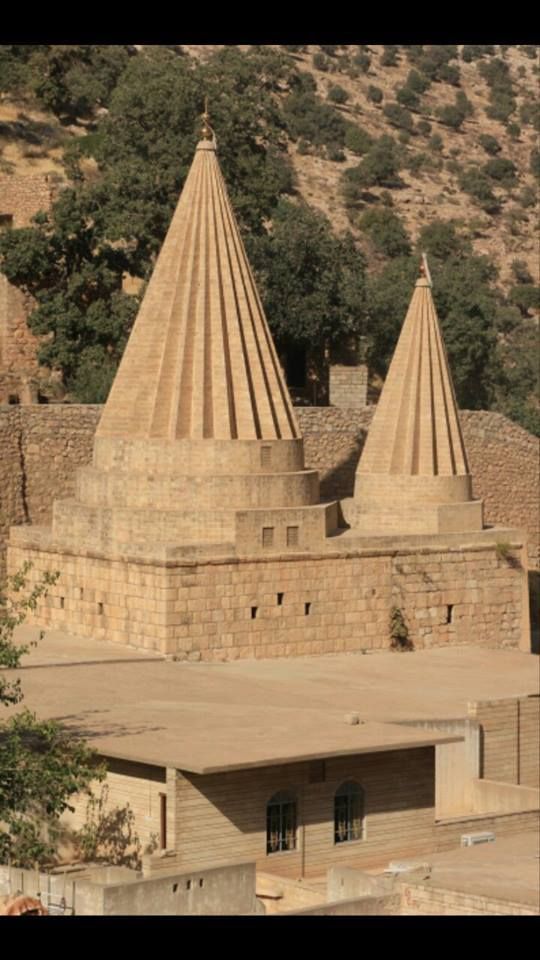The Yazidi community has a long and complex history that spans many centuries. Although the exact origins of the Yazidi faith are unclear, it is believed to have developed in the region that is now Iraq, and to have been influenced by various religions, including Zoroastrianism, Islam, and Christianity.
According to
Lalish tradition, their faith is based on the teachings of Sheikh Adi ibn Musafir, a Sufi mystic who is believed to have lived in the 12th century. Sheikh Adi is said to have traveled to Iraq from Egypt, where he had studied under a famous Sufi teacher. He settled in the Sinjar region of Iraq, where he attracted a following of disciples who were drawn to his teachings.
Over time, the Yazidi faith developed its own distinct beliefs and practices, incorporating elements of other religions and incorporating the figure of Melek Taus, or the Peacock Angel, as a central deity. Melek Taus is revered by Yazidis as the embodiment of divine wisdom and grace, and is said to have been the first being created by God.

Throughout their history, Yazidis have faced persecution and discrimination from various groups. The Ottoman Empire, for example, regarded the Yazidis as infidels and subjected them to forced conversions and massacres. In the early 20th century, Yazidis were targeted by Kurdish nationalists who sought to assimilate them into Kurdish culture.
More recently, the Yazidi community has been particularly targeted by the Islamic State of Iraq and Syria (ISIS). In 2014, ISIS militants overran the Sinjar region, killing and enslaving thousands of Yazidi men, women, and children. Many Yazidis were forced to flee their homes and seek refuge in other parts of Iraq or in neighboring countries.

Despite the challenges they have faced, the Yazidi community has managed to maintain its distinct cultural identity and way of life. Yazidis continue to practice their faith and preserve their unique traditions, including their music, dance, and poetry.
Today, the Yazidi community is working to rebuild its communities and seek justice for the atrocities committed against them. Many Yazidis are calling for recognition of the crimes committed against them as genocide, and are seeking support from the international community in their efforts to rebuild and recover from the traumas they have endured.
The history of the Yazidi people is a testament to their resilience and determination in the face of adversity. It is a story of a community that has faced persecution and hardship, but has managed to maintain its cultural heritage and way of life in the face of adversity.